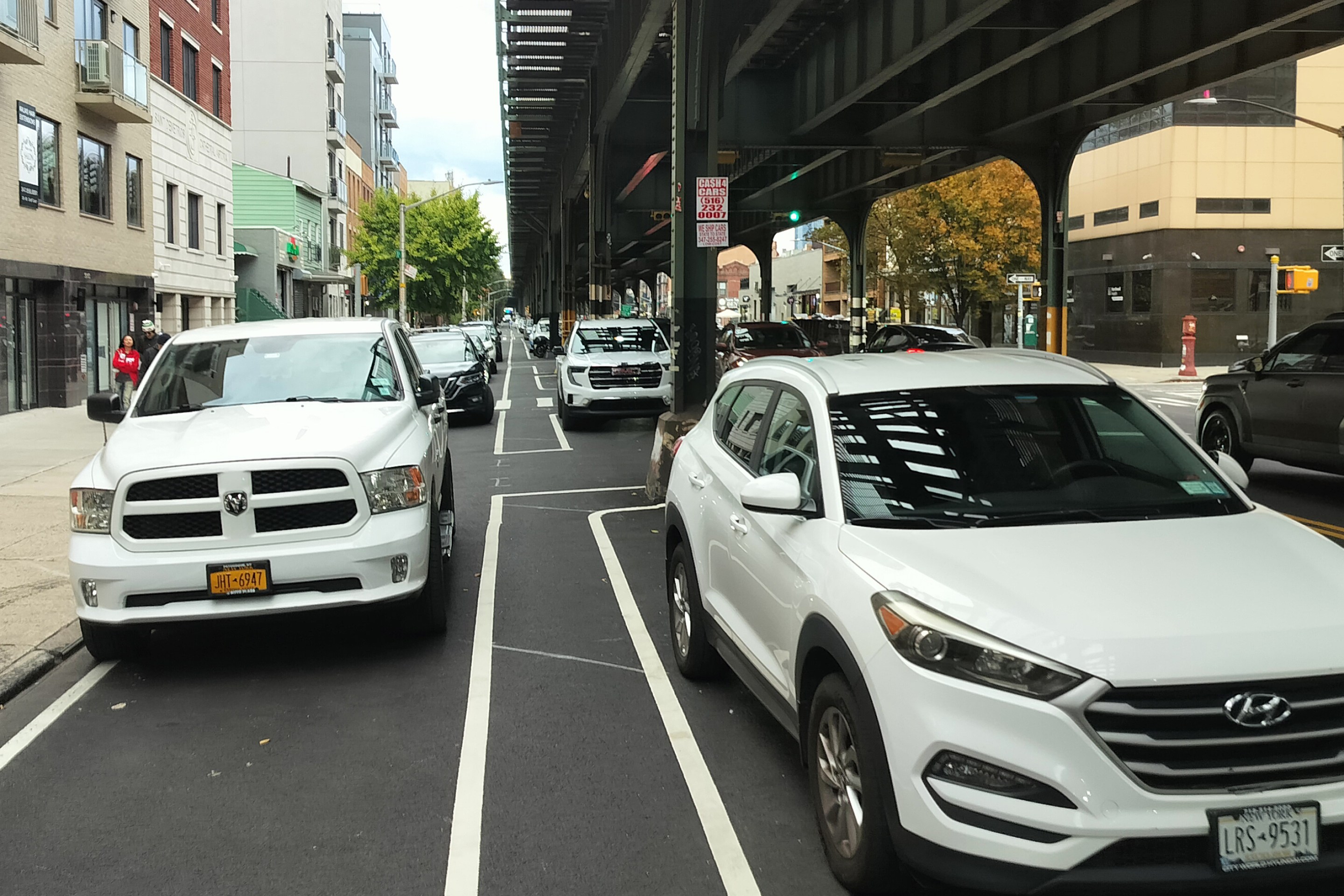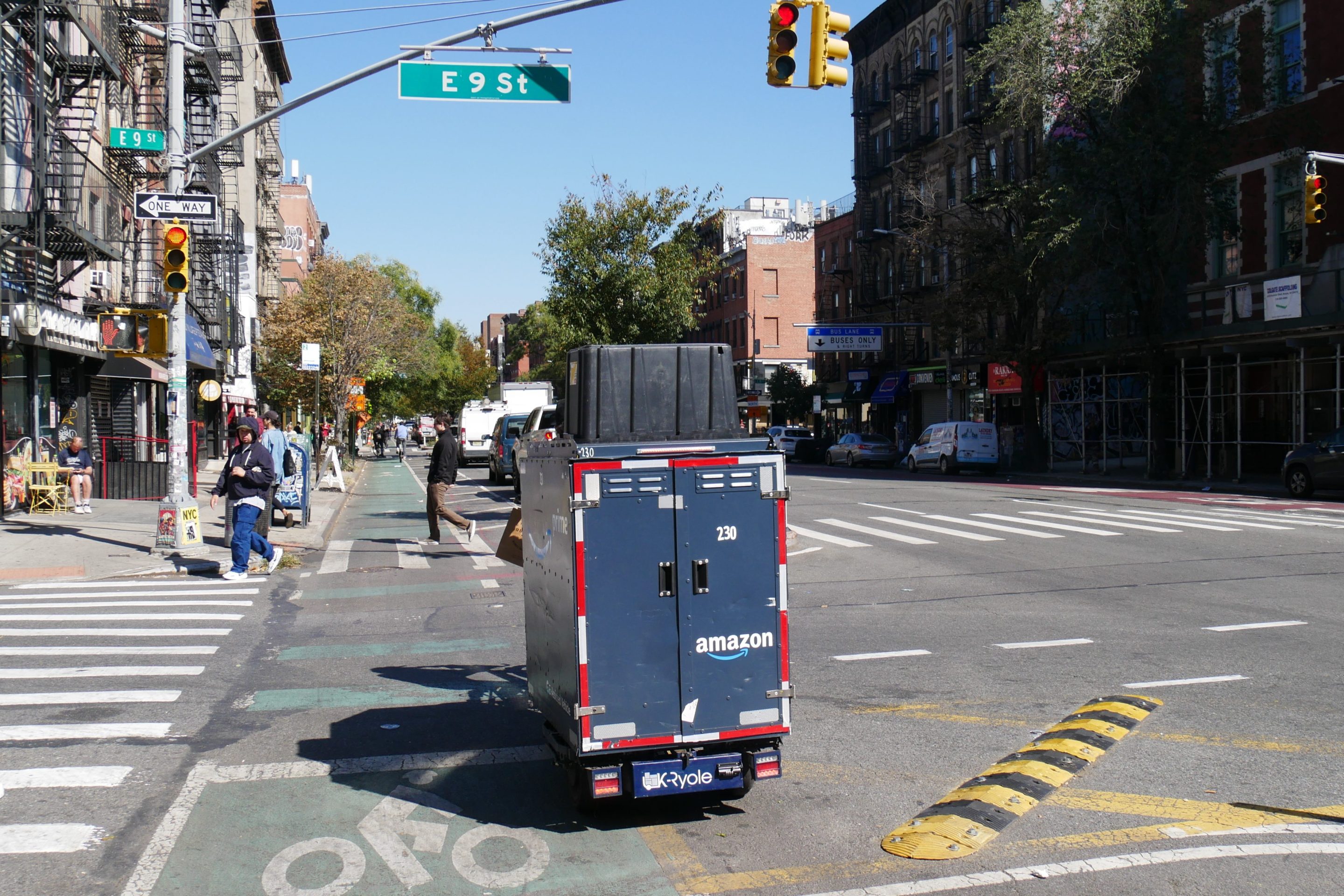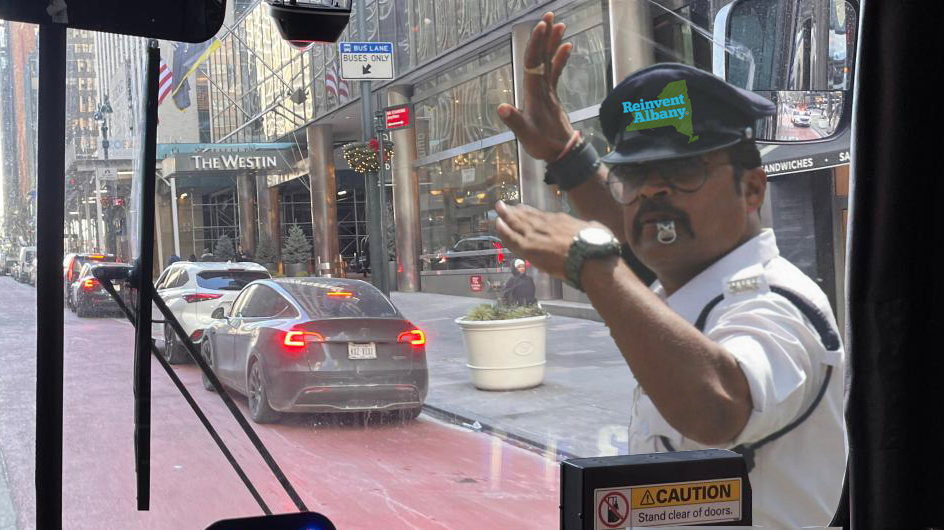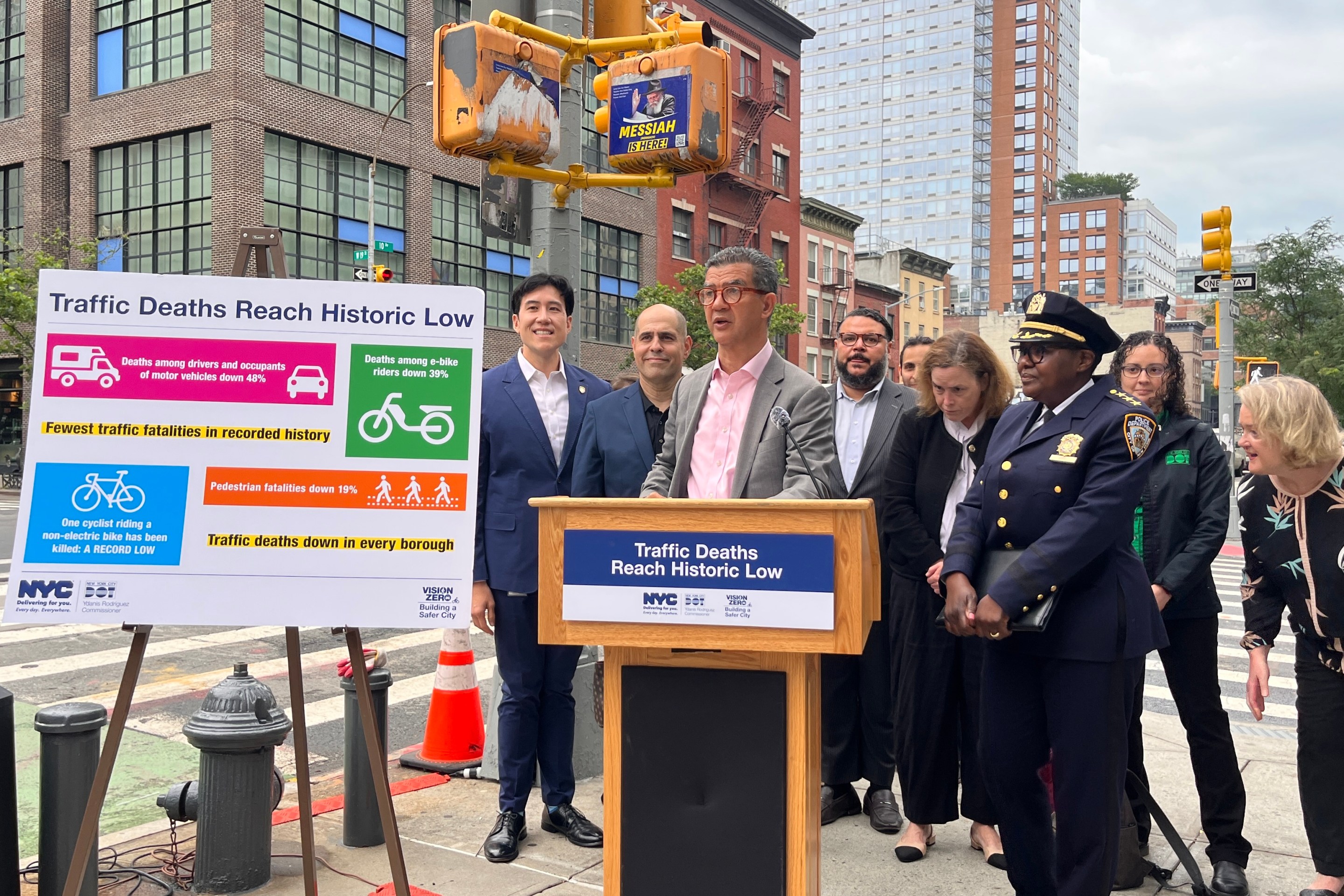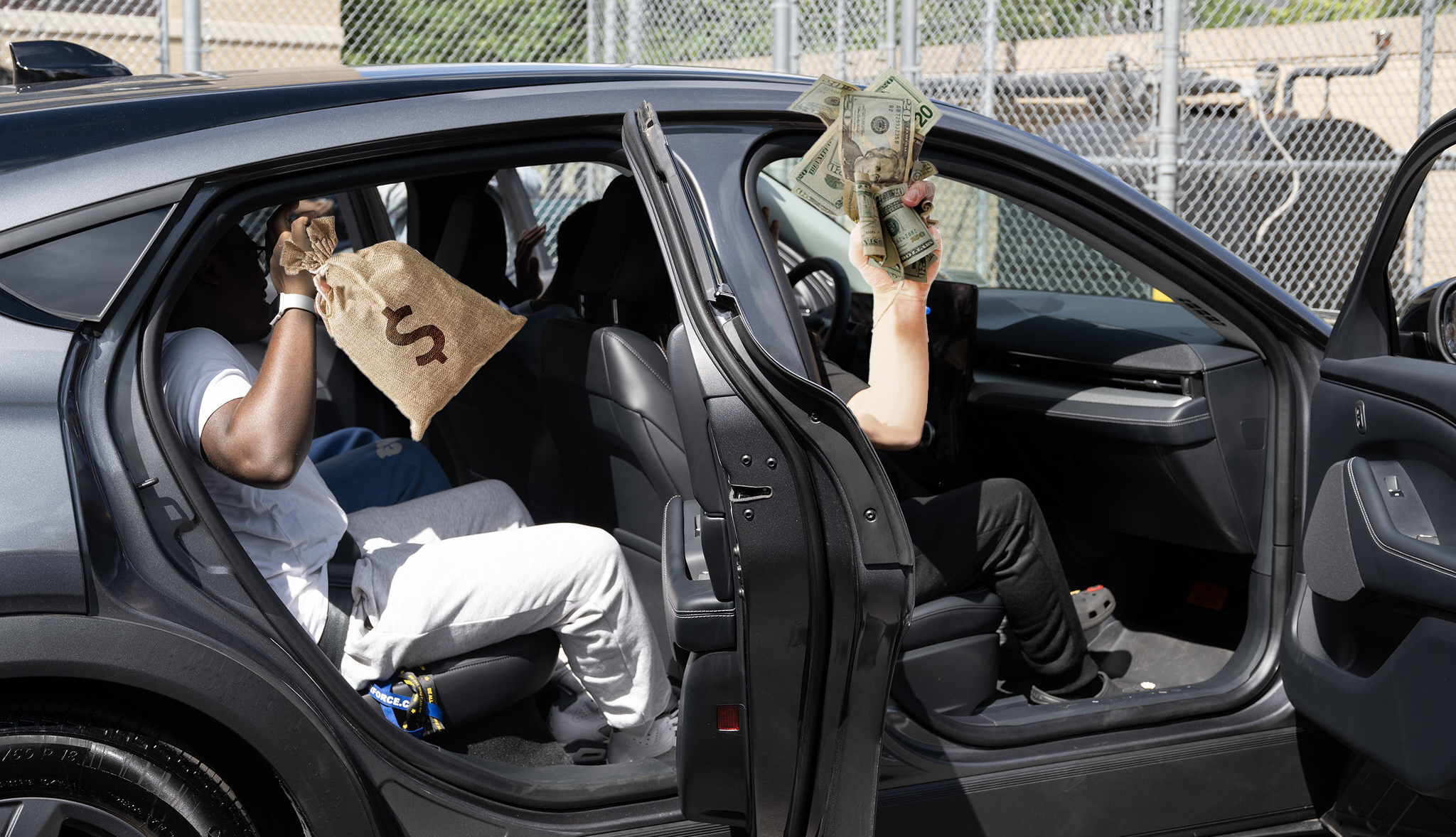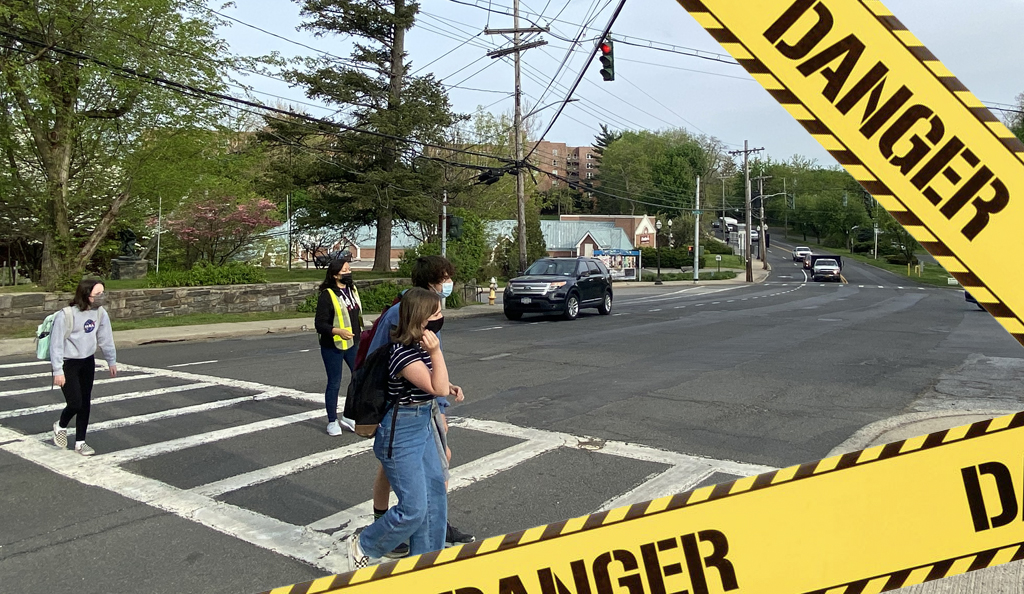In Portland, a political marriage has been brokered between biking and transit advocates. The two forces, once separate, have united under the heading "active transportation."
This year the Oregon Bike Summit changed its name to the "Active Transportation Summit," and many of the workshops focused on the collaborative power of these complementary modes.
Michael Andersen of Network blog Portland Afoot, writing for Bike Portland, examines some of the potential advantages and drawbacks of such a close collaboration, from the cyclists' perspective.
On the con side, for example:
Bicycle dollars go much, much farther than public transit dollars. Check out these comparisons, based on City of Portland data. (They're not perfect, since they exclude suburban commuters and local spending, but they show how much faster bicycling has been growing, and how amazingly little this has cost us.) When your strongest political argument is thrift, you don't invite a big spender to join your team.
And on the pro side:
Transit people are money experts. It's not just that transit agencies, unions and contractors have a herd of lobbyists who are nice to have on your side. It's that those lobbyists are more experienced, better-paid and -- especially in Portland -- more successful at pulling in huge federal grants for active transportation projects.
Anderson interviewed some of the region's leading sustainable transportation experts on the subject. Opinions were mixed, but the balance was decidedly toward the pro-partnership side:
Gerik Kransky, advocacy director, Bicycle Transportation Alliance [said] we need all the help we can get against the auto lobby. "Transit has a bigger bullhorn than bicycling does, but in the general scheme of things, both are a pipsqueak. ... We're going to do better by changing the funding environment as a team."
What do you think? How much do bike and transit advocates team up in your city, and what are the pros and cons of the arrangement?
Elsewhere on the Network today: The state of California is considering a bill that would require motorists passing cyclists not only to leave a three-foot buffer, but also slow their speed to no more than 15 mph faster than the cyclist's, Cyclelicious reports. Commute Orlando, in a letter to state officials, says continued road spending will only induce sprawl and drain resources from more important social objectives, like education. And Market Urbanism takes issue with Joel Kotkin's opinion-driven, fact-bereft treatise against "megacities."

